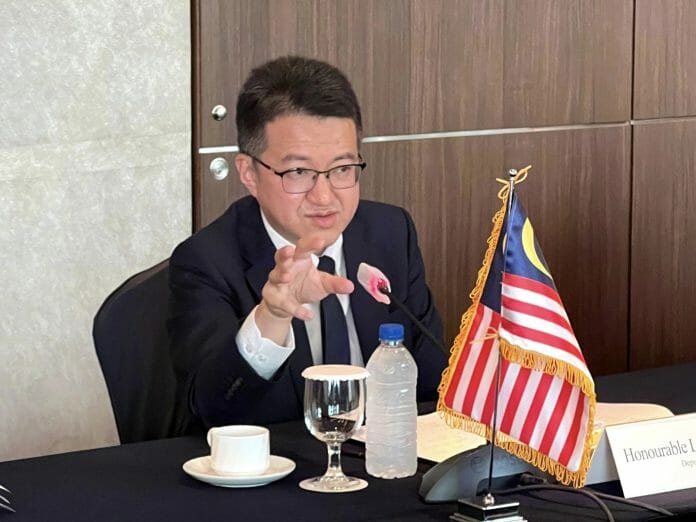The urgent need for green transition is pushing for across the world. As a country with significant deposits of critical minerals, Malaysia needs a lot more policy dialogues about the subject, and at a much faster pace.
Speaking at the Critical Minerals Business Forum Deputy Minister Of Investment, Trade And Industry (MITI) Liew Chin Tong said There are four areas that the Malaysian government should focus on:
a. Industrial development;
b. Developing high standards and resilience;
c. Federal-state relationship; and
d. IPEF collaborations
“Under the New Industrial Master Plan 2030 (NIMP 2030), the critical mineral industry has been identified as one of the key industries supporting the growth of high-tech industrial activities, especially in priority sectors such as electrical and electronic (E&E), electric vehicles (EV), aerospace and medical devices. A viable mineral industry is expected to enable the action plan under NIMP 2030 to succeed, especially to achieve Mission 1 – Advancing Economic Complexity. This sector is crucial in supporting Malaysia’s national agenda on the development of the EV industry supply chain, from high-end semiconductor production to battery making.,” he said.
The implementation of a specific action plan on national mineral policy under Mission 4 of the NIMP 2030 – Safeguarding economic security and inclusivity, is also critical, particularly in the down-streaming of local minerals to create the much-needed value to support our supply chain needs, and to strengthen Malaysia’s position in the global value chain.
“It is important for agencies across the Malaysian government to start working on a nationally accepted high standard for the exploration, exploitation and supply chain of critical minerals. There is already a cross-ministerial council at the highest political level but there is a pressing need for the agencies to speed up work on setting up the standards and the regulatory framework. Agencies under MITI such as Jabatan Standards and SIRIM will be part of this national effort,” Liew added.
A critical question about critical minerals is the federal-state relationship. Under the Malaysian constitutional framework, lands and natural resources are under the purview of state governments. However, a race to the bottom of the states would have a devastating impact on Malaysia’s environment and not in the national interest of Malaysia. Federal and state governments would have to find the suitable common ground to safeguard our national interests.
The forum organised by the American Malaysian Chamber Of Commerce (AMCHAM)provided an opportunity for the industry to gather and exchange views on issues that are important to the development of the critical mineral industry in not just Malaysia, but also regionally and globally.
At the forum, it was highlighted that the United States can play a more important role through the Indo-Pacific Economic Framework (IPEF). During the IPEF Ministerial Meeting in Detroit in May 2023, I raised the point that the United States and other advanced member economies in IPEF should support the Southeast Asian IPEF partners to develop downstream activities for a robust and safe critical minerals sector.
Meanwhile, the Indonesian Government followed up with a proposal to form a IPEF Critical Mineral Dialogue which was supported by the Malaysian Government. The Dialogue was established at the San Francisco round with all IPEF partners, and it is time to make it a structured and active platform to chart a path for long-term collaboration.
“We are into a new unknown era which requires a lot more understanding, knowledge and collaboration. Today’s forum, hopefully, is just the start of a thousand miles.” Liew said in his speech.









